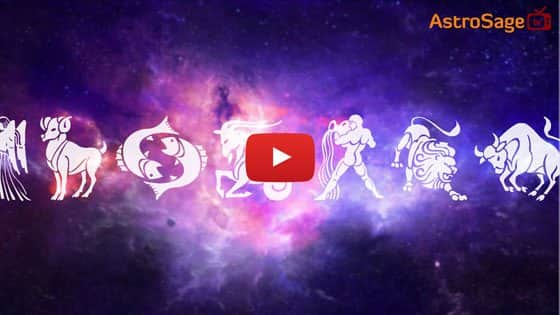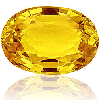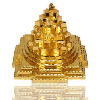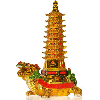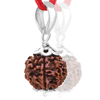Pongal 2016-Date
Pongal 2016 Date
15th
January 2016
(Friday)
|
Pongal 2016 date is 15th, January, 2016 .Call it an occasion of thanks giving to nature or festivities and re bonding, the word 'Pongal' literally means the boiling over of the rice in the cooking pot. This is one of the biggest harvest festivals in southern parts of India. There is no definite answer to how this festival originated, some find its root in the Dravidian harvest festival others relate it to the ancient festivals of Thai Un and Thai Niradal which were celebrated thousands of years ago during the Sangam age.. Across India, Pongal festival is celebrated with different names "Makar Sankranti" in central India, "Bhugali Bihu" in Assam and Poush in west Bengal.
"Pongal, also known as Thai Pongal, is a medium of connecting people to nature. People find profound happiness in paying tribute to the Lord Sun who is supposed to be a significator of good tribute."
Significance of the Date - Pongal 2016
A festival of the farming community, an occasion of thanks giving to Mother Nature , an expression of gratitude to the Sun for blooming harvest - Pongal is celebrated in the month of Thai according to the Tamil calendar. The date is suggestive of the end of winter and the beginning of the harvest season or spring, a season when nature is in full bloom.Astrologically speaking, those who follow the solar calendar believe that, when the sun enters the Makaram Rashi or the Tropic of Capricorn from the Tropic of Cancer, a very auspicious phase begins especially for the believers of Hindu culture. It is the phase when sun begins its journey northwards (Uttarayan) for a period of six months as opposed to southwards (Dakshinayan) movement. Uttarayana is especially auspicious to Hindu traditions as opposed to Dakshinayana, which means the movement of the sun towards the south.
Four Days of Pongal 2016
Pongal begins on the first day of the Tamil Month Maargazhi (December-January) and
lasts up to the third day of Thai. All these four days are national holidays in
Tamil Nadu.The celebrations span around for days which are called as follows.
- Bhogi Pongal: 15th January
- Surya Pongal: 15th January (Makar Sankranti)
- Maatu Pongal: 16th January
- Kaanum Pongal: 17th January
Pongal Legend
There are two popular legends associated with the festival Pongal. The first day Bhogi Pongal has an association with legend Lord Indra (the God of clouds and rains). Long long time ago people had great faith in Lord Indra -the King of the deities. Over a period of time Lord Indra became full of arrogance and false pride. He started to believe there was no one more powerful than him among the deities. When little Krishna got to know about this he thought of teaching Indra a lesson. He propagated the greatness of Mount Govardhan amongst his cowherd friends and asked them to worship it instead of Lord Indra. Agitated to see this in his fury Lord Indra sent forth the clouds to generate non-stop thunder, lightning, heavy rains and flood to punish people. Seeing this Lord Krishna lifted the huge Govardhan Parvat on his little finger and like a true protector he saved his cowherd friends from perishing. He continued to hold mount Govardhan saving humans from the wild storm and fury of Lord Indra. The three days long rain continued and then finally Indra realized his mistake and surrendered before the divine power of Lord Krishna. He promised humility and begged Krishna's forgiveness. Seeing Indra realize his pride was shallow Krishna allowed to let the Bhogi celebrations continue in honor of Indra. This is how pongal celebrations originated with the first day being celebrated as Bhogi Pongal. The festival got another name of Indran from this legendary story.
Another legend associated with the festival talks about the omnipresent Lord Shiva. The third day of Pongal is known as Mattu Pongal. There is an ancient legend associated with the celebration of this day. The Legend talks about the curse given by Lord Shiva to his his mount, Nandi (Basava), the bull. According to the legend, Lord Shiva once asked Nandi to go to the Earth as a messenger and ask people to get an oil massage done , take bath daily and to eat food once a month. Nandi however announced that people should have an oil massage and bath once a month and to eat food daily. Enraged Lord Shiva cursed Nandi and infuriated as he was announced a curse on people saying that there would be lack of grains on the Earth. Many believe that it was Shiva's curse that banished the bull to live on earth forever and help people plough the fields. From here stems the legend of Mattu Pongal that has an association with the cattle also referred to as Kanu Pongal by some.
Four days Festivities and celebration -Pongal 2016
Decorated cows, processions decorative Rangoli, a sweet porridge made from newly harvested rice and recipes like: Venn Pongal, Sarkarai Pongal, Chakara Pongal, Sweet Pongal Recipe, Rava Pongal, Khara Pongal, Rice Pongal along with soft idlis, paper dosai, boonda, pineapple rasam, rajma curry, bread idli and milk payasam �This is what Pongal means to most of us. However to elaborate on festivities -each day of this festival has a special significance. However the four days are celebrated in the villages primarily. Those in the city mainly celebrate the second day out of the four as Pongal. Widely celebrated in cities like Tamil Nadu, Andhra Pradesh and Karnataka, Pongal over years has become a festival celebrated worldwide with universal appeal. Let's have a look at the special functions associated with each of the four days.
Four Days of Pongal
Bhogi Festival - Bhogi or Bogi is the first of the four day celebrations celebrated in the honour of Lord Indra, the god of rain. People indulge in cleaning their house, removing all the clutter or even better getting their homes painted and whitewashed. Those in the villages bring home fresh harvest from the fields. Motto of the Bhogi festival is "Pazhaiyana Kazhithalum and Puthiyana Puguthalum" which means discard the old things and focus on what is new .One can also see huge bon fires made out of discarded and usless old goods from people's homes, all set to fire. In this way one discards what is old and welcomes the new.
Surya Pongal - The second day of Pongal is known as the Surya Pongal.It is this day that is actually celebrated as Pongal .This day is dedicated to the worship of the Sun god. The women home rise early and start by making beautiful pictures on the ground, known as Kolam( A sort of rangoli , with floral patterns) at the entrance of their house.. They prepare rice (New rice, which was harvested in the previous day) in pots, it's boiled till it spills out and this is what is termed as pongal. Later this preparation is offered to the sun god along with milk and jaggery
Mattu Pongal - the third day of celebration is known as Mattu Pongal. Primarily a celebration of rural areas now, this day is dedicated to the worship of cattle this includes both the cow and ox. Cattle are vital for farming, thus mattu pongal is celebrated for thanks giving the cattle. Interestingly the cattle are bathed and their horns painted with shining colors in a decorative way. After that, the cattle are fed with pongal , then the farmers take them round the village... .where the devotees offer flower garlands and other offerings to the cattle. The sight of decorated cows and bulls is much a delight adding colour to the festive spirit.
Kaanum Pongal - This is the final day of Pongal also known as Karinaal or Thiruvalluvar day, the later refers to the Tamil icon Thiruvalluvar. The women of the house assemble in the courtyard in early morning; rice is placed in the middle of the leaf as an offering to the Sun God. Woman of the family pray for the well being and prosperity of their brothers. To celebrate the occasion people get-together and visit their relatives in other villages and then together thank god for their well being. In cities we see people visiting picnic spots with friends and family.
Our team wishes all our revered visitors a VERY HAPPY PONGAL!! Have a great time with friends and families and explore the wealth of Indian tradition only on AstroSage.com.
Astrological services for accurate answers and better feature
Astrological remedies to get rid of your problems

AstroSage on MobileAll Mobile Apps
AstroSage TVSubscribe
- Horoscope 2026
- राशिफल 2026
- Calendar 2026
- Holidays 2026
- Shubh Muhurat 2026
- Saturn Transit 2026
- Ketu Transit 2026
- Jupiter Transit In Cancer
- Education Horoscope 2026
- Rahu Transit 2026
- ராசி பலன் 2026
- राशि भविष्य 2026
- રાશિફળ 2026
- রাশিফল 2026 (Rashifol 2026)
- ರಾಶಿಭವಿಷ್ಯ 2026
- రాశిఫలాలు 2026
- രാശിഫലം 2026
- Astrology 2026


























